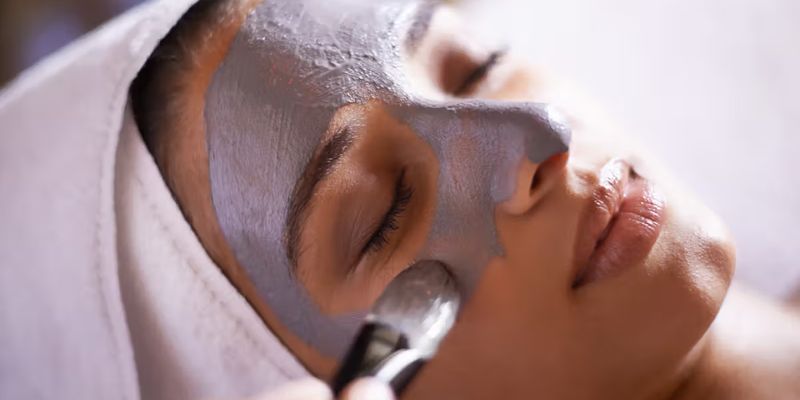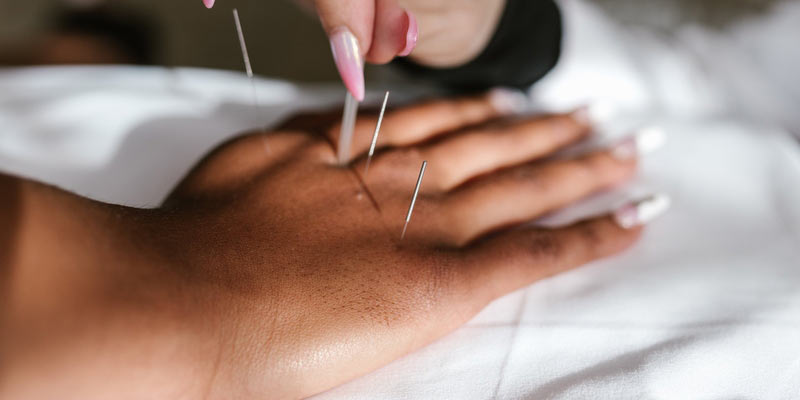Have you ever noticed a black line running down the center of your tongue? You might be wondering what it is and if it needs medical attention. It could be many things but it may also be an oral condition called black tongue.
The black tongue can look alarming at first glance. However, this condition is typically harmless and easily treatable with proper care. In this blog post we'll explore what causes black tongue so you can take steps to keep your mouth healthy.
What Causes a Black Tongue
Black tongue is a common condition, and its exact cause is unknown. However several factors are believed to contribute to the issue. These include the following:
- Poor Oral Hygiene: Poor oral hygiene is one of the most common causes of black tongue. Improper brushing and flossing may result in a buildup of bacteria, fungi, and other debris on the surface of your tongue. These can lead to discoloration and irritation that results in a black line or patch on the tongue.
- Smoking: Tobacco use can also contribute to the black tongue. The chemicals in cigarettes and other tobacco products irritate the mouth, making it more susceptible to discoloration.
- Excessive Coffee or Tea Consumption: Drinking too much coffee or tea can also cause a black line on the tongue. This is because caffeine is thought to contribute to dehydration, which can lead to dryness and irritation.
- Certain Medications: Certain medications, such as antibiotics and heartburn drugs, can also contribute to the black tongue. These drugs cause dryness and irritation in the mouth, which can lead to tongue discoloration.
- Dehydration: Dehydration can contribute to a black tongue, especially if you don't drink enough fluids. When your body is dehydrated, the mouth becomes dry and more susceptible to discoloration.
- Intravenous Drug Use: Intravenous drug use can irritate the tongue and cause blackness or discoloration. This is because these drugs can contain irritants that may make it more likely for a dark line to appear on the tongue.
- Compromised Immune System: People with a compromised immune system are more likely to develop a black tongue, as their bodies cannot fight off bacteria and other invaders that may cause discoloration.
- Cancer Treatment: Radiation or chemotherapy treatments can also lead to a black tongue, as they can dry out the mouth and make it more susceptible to discoloration.
- Trigeminal Neuralgia: This nerve condition can cause pain, tingling, and numbness in the face and head. People with this condition may experience a black tongue as a symptom due to irritation of the nerves in the mouth.
By understanding the potential causes of the black tongue, you can help prevent it from occurring in the first place.
Symptoms
The symptoms of the black tongue can vary depending on the underlying cause. The most common symptom is discoloration of the tongue, which may appear as a black line or patch on the center of the tongue.
Although the name for the condition implies that the tongue turns black, the discoloration can also be brown, white, or yellow. Other symptoms may include bad breath, a change in food taste, a gagging sensation, a tickling sensation, and nausea.
In some cases, people may not experience any additional symptoms other than tongue discoloration. However, if other symptoms are present, they can include bad breath or halitosis; a change in the taste of food; an uncomfortable feeling in the mouth; a gagging sensation; and an itchy feeling on the tongue. Some people may also experience nausea due to the discoloration.
When to See Your Healthcare Provider
If you notice discoloration on your tongue, it's important to talk to your primary care provider or dentist. This could indicate an underlying condition, such as trigeminal neuralgia, compromised immune system, or cancer treatment.
Additionally, it is important to seek medical attention if the discoloration is accompanied by other symptoms such as bad breath, a change in food taste, a gagging sensation, and nausea.
Diagnosis

When diagnosing the black tongue, dentists can usually identify the condition simply by looking at the mouth. If they suspect more severe or underlying causes, they may perform additional tests to rule out other conditions.
- Bacterial Culture Swabs: In some cases, a doctor may use a swab to take a sample from the tongue and send it to a lab for further testing. This test can help identify bacteria, fungi, or other debris causing discoloration.
- Fungal Scrapings: A doctor may also scrape off some of the discolored areas on the tongue and examine it under a microscope. This can help determine whether a fungus or another organism causes the discoloration.
- Other Conditions: Other conditions, such as oral hairy leukoplakia and pigmented fungiform papillae of the tongue, can mimic the black tongue. Additionally, acanthosis nigricans can cause dark spots to appear on the tongue. If there is any doubt about the diagnosis, a doctor may perform additional tests, such as a biopsy, to rule out cancer.
- Early Symptoms of Tongue Cancer: In some cases, discoloration on the tongue can be indicative of tongue cancer. The most common symptom is a lesion or scab that does not heal. Other symptoms include pain and difficulty swallowing or speaking. People with these symptoms should seek medical attention as soon as possible.
Treatment Options

Brushing and Scraping
One of the most effective treatments for the black tongue is brushing and scraping. This helps to remove any bacteria, food particles, or other debris that may be causing discoloration on the tongue. It's important to use a soft-bristled toothbrush and mild toothpaste; vigorous brushing can further irritate the tongue and cause discoloration to worsen.
Avoiding Irritants
Certain substances, medications, and activities can irritate the mouth, which may lead to a black tongue. For example, alcohol, tobacco products, certain antibiotics, and pain medications can all contribute to tongue discoloration.
Limiting or avoiding these substances is essential if you are trying to prevent or treat a black tongue. Also, if you notice any other substances or activities that cause tongue discoloration, try to avoid them.
Dietary Changes
Eating a healthy diet rich in fruits and vegetables can help keep your mouth healthy and prevent tongue discoloration. Eating foods with rough textures, such as celery or raw carrots, may also help reduce discoloration.
Additionally, avoiding foods and beverages high in sugar or acid can be beneficial for reducing the black tongue. Sugary and acidic foods can promote the growth of bacteria in the mouth, which can cause discoloration on the tongue.
Antifungal Medication
In some cases, antifungal medications may be prescribed by your healthcare provider to treat a black tongue. These medications help to kill off the fungus or other organisms that may be causing discoloration of the tongue.
Retin-A
Another option for treating a black tongue is Retin-A (also known as tretinoin). This topical cream can help reduce tongue discoloration and keep it healthy. It may take several weeks of treatment to see results, so consistency is important.
Laser Surgery
In some cases, laser surgery may be necessary to treat a black tongue. This procedure can help remove discolored areas on the tongue that are resistant to other treatments.
FAQs
What is the black tongue?
The black tongue is a harmless condition caused by an imbalance in bacteria, yeast, or fungi on the tongue. It can cause tongue discoloration and may be accompanied by other symptoms, such as bad breath and a change in food taste.
What causes the black tongue?
Various things, including poor oral hygiene, certain medications, an impaired immune system, and cancer treatment, can cause a black tongue.
How is the black tongue treated?
The black tongue can be treated with brushing and scraping, avoiding irritants, dietary changes, antifungal medications, Retin-A cream, and sometimes laser surgery.
Conclusion
The black tongue is a harmless condition that can cause discoloration on the tongue. It is usually caused by an imbalance of bacteria, yeast, or fungi in the mouth and can be treated with brushing and scraping, avoiding irritants, dietary changes, antifungal medications, Retin-A cream, or laser surgery. If you have any additional symptoms or if the discoloration persists, it is important to seek medical attention from your healthcare provider. You can keep your mouth healthy and free of discolored areas with proper care and treatment.







